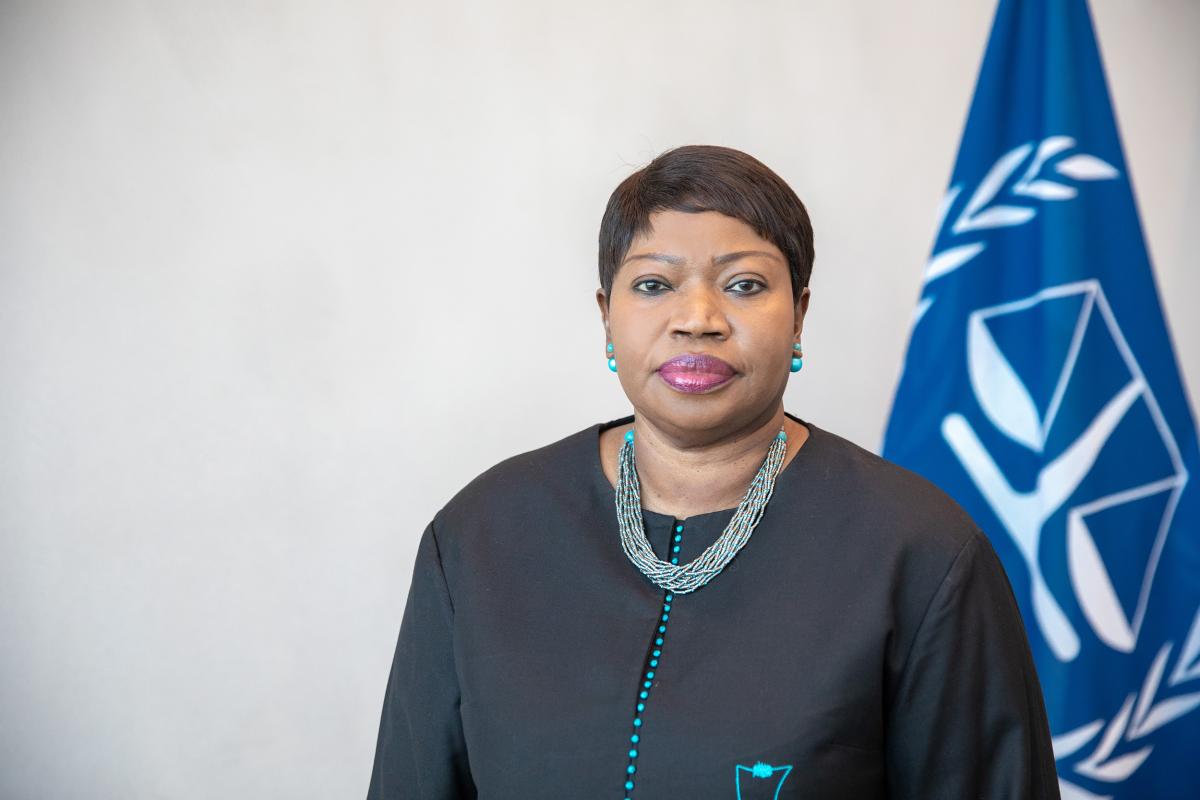Statement of ICC Prosecutor, Fatou Bensouda, in relation to the escalation of violence in and around Tripoli, Libya

I am deeply concerned about the escalation of violence in Libya in the context of the resurging conflict arising from the advance of the Libyan National Army ("LNA") towards Tripoli, and related fighting with forces aligned with the Government of National Accord ("GNA").
As Prosecutor of the International Criminal Court ("ICC" or the "Court"), I call on all parties and armed groups involved in the fighting to fully respect the rules of international humanitarian law. This includes taking all necessary measures to protect civilians, and civilian infrastructures, including schools, hospitals and detention centres. I urge all parties to the conflict not to commit any crimes within the Court's jurisdiction, and in particular, for commanders to ensure that their subordinates do not do so.
I remind all parties that any person who incites or engages in such crimes including by ordering, requesting, encouraging or contributing in any other manner to the commission of crimes within the jurisdiction of the Court is liable to prosecution.
I also remind all commanders, military or civilian, who have effective control, authority and command over their forces that they themselves may be held criminally responsible for crimes committed by their subordinates. The law is clear: where commanders knew or should have known that crimes are being committed, and they failed and/or neglected to take all necessary and reasonable measures to prevent or repress their commission, they may be held individually criminally accountable.
Following the referral of the situation of Libya by the UN Security Council Resolution 1970 (2011), and in accordance with my mandate under the Rome Statute, my Office is currently investigating several cases in the Libya situation, and continues to actively monitor the developing situation in the country. I will not hesitate to expand my investigations and potential prosecutions to cover any new instances of crimes falling within the Court's jurisdiction, with full respect for the principle of complementarity. No one should doubt my determination in this regard.
The Office of the Prosecutor of the ICC conducts independent and impartial preliminary examinations, investigations and prosecutions of the crime of genocide, crimes against humanity, war crimes and aggression. Since 2003, the Office has been conducting investigations in multiple situations within the ICC's jurisdiction, namely in Uganda; the Democratic Republic of the Congo; Darfur, Sudan; the Central African Republic (two distinct situations); Kenya; Libya; Côte d'Ivoire; Mali; Georgia and Burundi. The Office is currently analysing the recent decision of the Pre-Trial Chamber II in response to Prosecutor's request for authorisation to commence an investigation into the situation in the Islamic Republic of Afghanistan, and will consider all available legal remedies. The Office is also conducting preliminary examinations relating to the situations in Bangladesh/Myanmar; Colombia; Guinea; Iraq/UK; Palestine; the Philippines; Nigeria; Ukraine, and Venezuela.
يساورني بالغ القلق بشأن تصاعد أعمال العنف بليبيا في سياق النزاع الذي اندلع مجددا والذي نشأ عن تقدم الجيش الوطني الليبي صوب طرابلس، وما يتصل بذلك من القتال مع القوات الموالية لحكومة الوفاق الوطني.
وبصفتي المدعية العامة للمحكمة الجنائية الدولية (''المحكمة'')، أهيب بجميع الأطراف والجماعات المسلحة المشارِكة في القتال إلى أن تحترم قواعد القانون الدولي الإنساني احتراما كاملا. ويشمل ذلك اتخاذ كل التدابير اللازمة لحماية المدنيين والبنى التحتية المدنية، بما فيها المدارس، والمستشفيات، ومراكز الاحتجاز. وأحث جميع أطراف النزاع على عدم ارتكاب أي جرائم تدخل في اختصاص المحكمة، ولا سيما أن يكفل القادة عدم ارتكاب مرؤوسيهم تلك الجرائم.
وأذكّر جميع الأطراف بأن كل من يحرض على ارتكاب تلك الجرائم أو ينخرط في ارتكابها، بما في ذلك عن طريق الأمر بارتكابها أو طلبه أو التشجيع عليه، أو الإسهام بأي طريقة أخرى في ارتكاب الجرائم التي تدخل في اختصاص المحكمة، سيكون عرضة للمقاضاة.
وأذكّر أيضا جميع القادة، العسكريين منهم والمدنيين، الممسكين بزمام التحكم الفعلي في قواتهم والسيطرة عليها وقيادتها، أنهم أنفسهم قد يحمّلوا المسؤولية الجنائية عن الجرائم التي يرتكبها مرؤوسوهم. فالقانون واضح: إذا كان القادة قد علموا، أو يفترض أن يكونوا قد علموا، أن الجرائم تُرتكب، ولم يتخذوا جميع التدابير اللازمة والمعقولة لمنع ارتكابها أو قمعه، و/أو أهملوا في اتخاذ تلك التدابير، فإنهم قد يحمّلوا المسؤولية الجنائية على نحو منفرد.
وبناء على إحالة الحالة في ليبيا بموجب قرار مجلس الأمن التابع للأمم المتحدة 1970 (2011)، ووفقا لولايتي بموجب نظام روما الأساسي، يحقق مكتبي حاليا في عدة دعاوى في الحالة في ليبيا، ولا يزال منكبا على رصد تطور الوضع في البلاد.
وإني لن أتردد في التوسع في تحقيقاتي وفي أعمال المقاضاة المحتملة بحيث تشمل أي حوادث جديدة تقع فيها جرائم تدخل في اختصاص المحكمة، مع الاحترام التام لمبدأ التكامل. وينبغي ألا يرتاب أحد في تصميمي بهذا الصدد.
يُجري مكتب المدعي العام بالمحكمة الجنائية الدولية دراسات أوّلية وتحقيقات وأعمال مقاضاة تتميز بالاستقلالية والتجرد في جرائم الإبادة الجماعية والجرائم ضد الإنسانية وجرائم الحرب وجريمة العدوان. ويجري المكتب منذ عام 2003 تحقيقات في حالات متعددة تدخل في اختصاص المحكمة، تحديدا في أوغندا، وجمهورية الكونغو الديمقراطية، ودارفور بالسودان، وجمهورية أفريقيا الوسطى (حالتين منفصلتين)، وكينيا، وليبيا، وكوت ديفوار، ومالي، وجورجيا، وبوروندي. ويحلل المكتب حاليا القرار الذي أصدرته مؤخرا الدائرة التمهيدية الثانية ردا على طلب المدعي العام الإذن بالبدء في إجراء تحقيق في الحالة في جمهورية أفغانستان الإسلامية، وسينظر في كل سبل الانتصاف القانونية المتاحة. ويُجري المكتب أيضا دراسات أوّلية تتصل بالحالات في بنغلاديش/ميانمار، وكولومبيا، وغينيا، والعراق/المملكة المتحدة، وفلسطين، والفلبين، ونيجيريا، وأوكرانيا، وفنزويلا.
المصدر: مكتب المدعي العام